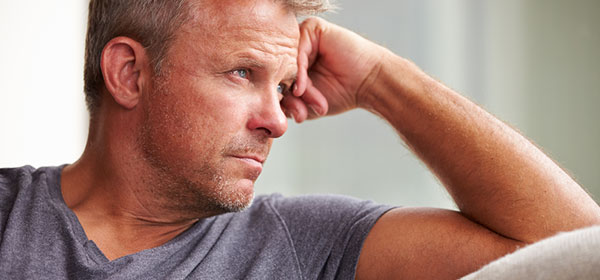Losing a loved one and re-entering your world as a single can be an anxious and confronting time. Psychologist Dr Eric Goodman is an expert in this area and offers the following advice.
After the loss of a loved one, many people find their social life takes a big hit.
Perhaps you and your loved one were best friends who delighted in travelling, eating and laughing together – your social tanks filled with the satisfaction of being together. Or, maybe your loved one was the social butterfly in the family, whisking you along to various functions and events with new and interesting people.
After relying on your companion to fulfill your social needs, it can take a lot of courage to boldly venture out into the social world alone, especially if your social anxiety tries to keep you stuck at home.
Why would social anxiety do this?
People are hard-wired to be at least somewhat wary of social ‘risks’, such as meeting new people, speaking up at a social event or going out on a first date. Our brains still harken back to an earlier time in human history when we lived in small hunter-gatherer tribes. Being rejected in these early tribes came with harsh consequences. Likewise, encountering a stranger in those days could be a risky life-or-death situation. Our brains still warn us of social dangers that are not really dangerous in today’s world.
So how might your brain, through an over-abundance of caution, try to keep you away from social risks?
First, it may tell you things to try to scare you away from venturing out into greener social pastures, such as:
– you have nothing to offer
– no one will like you
– you are undesirable because … (enter your deepest insecurity here).
If thoughts such as these are holding you back, there are a couple of approaches you can take.
– Try to see things more logically and compassionately: ‘I have nothing to offer. I know it’s normal to have such thoughts, even though my loved one, who passed away, thought I had a lot to offer. I don’t have to let brain noise such as this hold me back.’
– Practise accepting unpleasant thoughts as normal and not attaching to them. Tell yourself: ‘there goes my brain giving me the thought that I have nothing to offer. I don’t need to follow it down the rabbit hole.’
Having social courage means pushing forward with your social goals even though your brain will warn you not to.
What do I do with the uncomfortable feelings?
Experiencing some degree of anxiety is mandatory in life – it comes with the territory of being human. You can break it down into two types of anxiety: ‘clean’ and ‘dirty’.
Clean anxiety is the normal reaction of anxiety on the body. For example, the adrenalin, increased heart rate, light-headedness or the perception of having jelly-legs. If that is what automatically shows up for you, that is clean discomfort.
Dirty anxiety, however, arises from harshly judging your clean anxiety:
– why me?
– I hate how this feels
– it must stop
– what a loser I am for feeling this
– I can’t take it!
Dirty anxiety dumps waves of increased anxiety and suffering on top of the clean.
You can reduce your dirty anxiety by letting go of the judgement and softening into the clean anxiety. It’s like holding a crying baby softly and with compassion rather than trying to wish it off to college 17 years early.
You can lessen the clean anxiety over time by practising good lifestyle habits such as proper sleep, nutrition, exercise and mindfulness. Over time, having social success will also reduce the clean anxiety, but for that to happen you must push past your initial urge to avoid uncomfortable social situations.
Rather than giving in to the siren song of avoidance, use social situations as a teachable moment for your anxiety. Social courage involves bringing your anxiety with you to the feared social event and letting it see for itself that the thing it worried about (catastrophic rejection) does not come to pass and that you can tolerate the clean anxiety.
Initially, try shifting your goal from being comfortable socially to being willing to move towards your social goals with anxiety coming along for the ride – and learning a thing or two along the way.
While it is normal for social anxiety to pop up to some degree in some situations, you can learn to relate to it differently, suffer less and, most importantly, move forward towards a richer, more fulfilling social life.
Eric Goodman, Ph.D. is a clinical psychologist, author and speaker who specialises in helping people face their social fears and anxiety disorders. He has been a lecturer at Northeastern University and California Polytechnic State University. In addition to his private practice in San Luis Obispo, California, he runs Social Courage groups and retreats. He is the author of Social Courage available now from http://www.exislepublishing.com and wherever good books are sold.
Related articles:
How not to start a war about care
‘What am I not being told?’
How to forgive and forget

